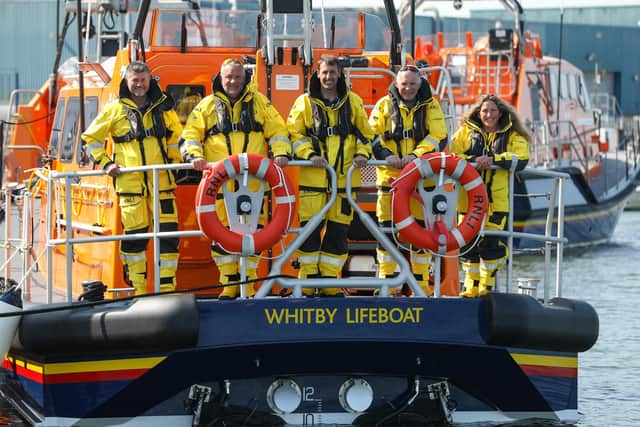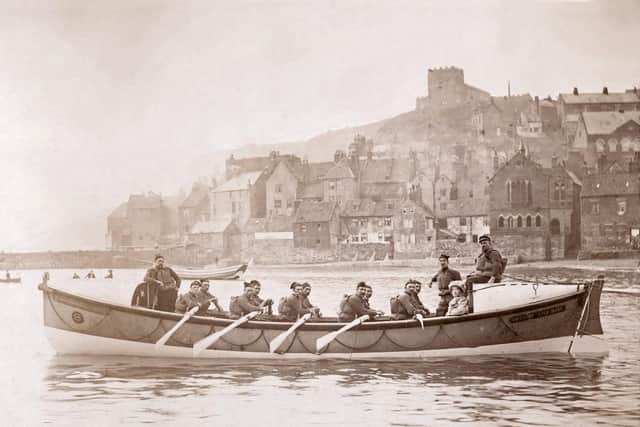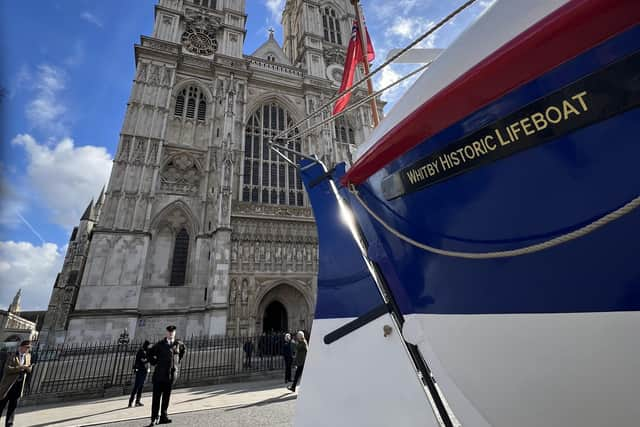"It becomes a way of life" - what the RNLI means to families and crews in Whitby
The blue skies have been a rarity for here at this time of year but today there is an air of calm and joy in the air.
It is certainly better for the dozens of school children who are pouring excitedly on rotation through the doors of the boathouse at Whitby.
School trips are a regular booking here but on this day in particular, there is an extra air of celebration.


As they file up the steps into the North Yorkshire fishing town’s RNLI base - on what happens to be the life-saving charity’s 200th anniversary - history is peering back down at them.
Photographs and rolls of honour from the 1800s onwards of lifeboat men recognised with medals for heroic acts of bravery at sea adorn the walls.
Storr, Freeman, Eglon, Harland, Welham, Verrill - all surnames of previous crew, Whitby families who have settled here for generations and served on the lifeboat. It starts to give you some sense of what the service means to local people.
Other than the full time employed coxswain and the mechanic, the crew and helpers are all voluntary, most with other day jobs, and do it out of their own time, pocket and affiliation with what the lifeboat means to Whitby.


Richard Dowson is the station mechanic and joined the crew more than 20 years ago. He grew up in a flat behind the boathouse, in the heart of Whitby’s old town, and as a child would watch when the maroons went off and the unmistakable orange and blue boats headed out to sea - unsure of what awaited them.
He said: “The backbone of the RNLI is volunteers. We get the support from the public because they understand it is run by volunteers.
“I was brought up here for the first 15 years of my life. I would play on the beach, hear the maroons go off and watch the boat go out. I probably didn’t think that much about it as a child, but it was part of life growing up in Whitby.
“I had family members on the crew a long time ago. It literally is a way of life, being the full time mechanic, my lifestyle works around this.”


Mr Dowson has to be within ten minutes of the station so, if his wife wants to pop to Scarborough shopping, he either can’t go or has to arrange a deputy. Over the years he has left funeral teas and birthday parties to attend rescue calls and many Sunday dinners have gone cold.
Both his daughters were christened on Whitby’s last lifeboat, The George and Mary Webb.
There has been a lifeboat in Whitby since 1802, long before the RNLI was established, and is thought to have been one of the first in the country. It was run by the Whitby Lifeboat Association and was purchased by public subscription for £50 and was for the aid of ships and later trawlers operating off the coast.
Thirty six medals have been awarded to Whitby crew - five gold, 14 Silver and 17 Bronze - since 1824.
